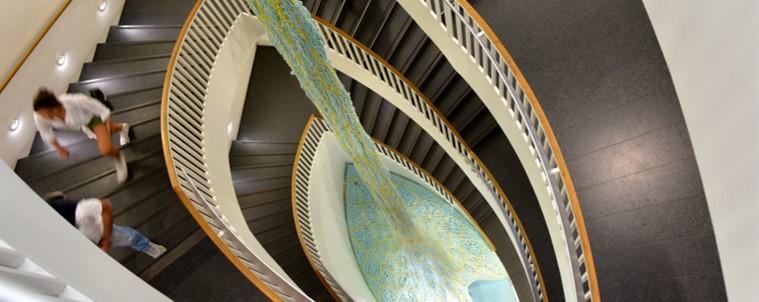
Don’t blame technology
If you think about transformation and digital transformation, the first thing that comes to mind (and the thing which has been written about most) is fear. We speak a lot about being resistant to change because we think that that change will make us lose something that we’ve already gained, or through fear of not being able to adapt to new models. I recommend that you read “The evolution of man, or how I ate my father” by Roy Lewis (El fin del Pleistoceno in Spanish), a satirical novel about the fear of evolution told through the point of view of a family in the Ice Age, in an environment full of anachronisms. Really enjoyable.
We are all capable of understanding the uncomfortable feelings of vulnerability or inferiority when things stop being how they were and leave what we call our “comfort zone”, and we start feeling anxious. In the face of this situation, feeling scared and more, we have two options: carry on as before or start looking for new ways and ways to work. Transform ourselves.
Nearly 20 years ago, during the first euphoria.com, a very simple book was in fashion: “Who Moved my Cheese?”. I’m sure that some of you remember it because it was a best seller in book shops, and its content was extremely resourceful, explaining the changes which were starting to happen in the face of technology which was now in everyone’s reach. In a fabulous way, Spencer Johnson explains the necessity of facing up to these changes, of searching for new ways (both in work and in private life), of overcoming fears and what we will miss out on if we don’t.
We can view transformation as an enemy or consider evolution, new technologies and new perspectives as an opportunity to construct something new and better. I prefer this second option, but what do we do about our fears? What do we do with what we’ve gained? How do we face up to an increasingly alien world in which the rate of changes is exponential?
There is a free tool with an open code to which everyone has access, but not everyone takes advantage of: curiosity.
Over the course of my life I’ve learnt that the most important driver for change is curiosity. The people who take advantage of curiosity are the same ones who make the world a better place, who look for and find better ways. And amongst the characteristics which draw the most curious minds together: a passion for the unknown, energy for infinite experimentation and the resources to overcome frustration.
Curiosity isn’t scared of the new (even overcoming it) neither of transformation nor technology; in fact, technological advances are an open door for the imagination. Surely everyone is in agreement that, thanks to the curious minds that run tests, make mistakes and find new ways today there are better formulas than mass poisoning to kill cancer cells. Someone thought: “and if we freeze them?”. Well then, they die.
In addition, curious people don’t get tired of trying again and again and this is greatly linked to their capability to manage frustration. The reward of innovation is greater than the pain of failure, and that makes them continue to try to find new and better solutions. Remember the answer of T. A. Edison when one of his students asked him if he didn’t get discouraged by repeated failures: “I haven’t failed, I’ve just discovered 999 ways of how not to make a lightbulb“.
The good news for everyone who wants to create a culture of change in their companies is that we are all curious and that promoting curiosity is easy. We just have to go over everything that we’ve done and ask ourselves if we would do it a different way or if we would use different tools or if we would change the structures or… and don’t cease to be determined in finding better methodology, processes, business routes, even though we might fail on several attempts. Technology is a facilitator, not the guilty party.
